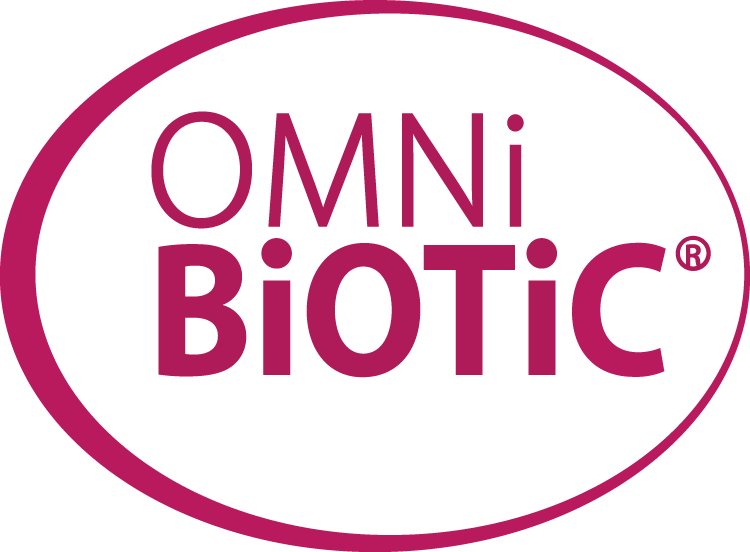Can You Take Too Many Probiotics?

Home / Blog / Probiotics
Your body already has over 30 trillion bacteria, so it is very unlikely that you could take too many probiotics, which add more healthy bacteria to your digestive tract.
Probiotics are beneficial microorganisms found in some foods, like yogurt, kefir, kimchi, and sauerkraut, and can also be obtained through supplements. Common strains of probiotics include Lactobacillus and Bifidobacterium, which offer different benefits, but both help keep your intestinal environment—or gut microbiota—balanced.
In adequate amounts, these good bacteria are associated with many health benefits, including helping to relieve symptoms of irritable bowel syndrome (IBS), lactose intolerance, and some infections.
While research indicates probiotics have a history of being safe, it’s still important to safely consume probiotic supplements. This article reviews the potential side effects of probiotics, who should avoid taking probiotics, how to know if you’ve taken too many probiotics and how to determine the right amount to take.
Can You Overdose on Probiotics?
Taking the most common probiotic supplements—even large doses or over extended periods—is not likely to lead to an overdose for healthy individuals. The most common side effect of probiotics is digestive discomfort.
Scientific research on the gut microbiome and probiotics is relatively new—it didn’t start gaining attention until the 1990s. While the evidence is still growing, it does not appear that long-term use of probiotics is harmful since your gut already has tens of millions of beneficial bacteria. Most likely, any good bacteria in excess of what your body needs will just leave the body via your next bowel movement.
But probiotics are not advised for everyone. Those with a serious illness or weakened immune system might need to avoid probiotic supplements as they can cause adverse effects, including infection, even in doses that don’t seem like too much. Adding a probiotic supplement to their wellness routine should be discussed with a healthcare professional.
While serious risks from taking too many probiotics are rare, you can still experience side effects.

Signs You May be Taking Too Many Probiotics
When you take probiotics, you’re providing your gut with beneficial bacteria that can help keep you healthy by displacing pathogenic bacteria. Many of the bacterial strains within probiotics already exist in your gut microbiome.
Even though the bacteria may be familiar to your body, it is possible to experience side effects from taking large amounts of probiotics. You may experience bloating, gas, nausea, or diarrhea when taking high amounts of probiotics. That being said, a few days of mild digestive upset when starting to take a new probiotic can be quite normal and mean that your gut flora is rebalancing. These symptoms should subside within a few days once the gut flora has adjusted.
Probiotics are often used to help relieve constipation and may lead to more trips to the bathroom. Research shows that probiotics can help move things through your digestive tract and may increase the number of bowel movements.
Diarrhea, Gas, Bloating, and other Digestive Symptoms
Some people experience mild upset stomach, excess gas, diarrhea, or bloating during the first few days of taking probiotics as the gut microbiome rebalances. These side effects typically subside within a few days and don’t necessarily mean you’re taking too large of a dose. But experiencing continued side effects may be a sign to decrease the amount of probiotics you’re taking.
Headaches from Amines in Probiotic Foods
Some bacterial strains in probiotic foods produce undesirable biogenic amines, which can cause some people to experience headaches. In low doses, it’s safe to consume foods that produce these by-products because your intestines have the ability to detoxify biogenic amines before you experience any side effects. High amounts of biogenic amines can often overload the intestine’s ability to detoxify and lead to adverse effects like headaches.
Biogenic amines are mainly found in probiotic-rich foods that undergo fermentation, such as cheese, dried meat, wine, and some fish. It’s unlikely that a probiotic supplement would result in the production of biogenic amines and subsequent side effects.
Certain Strains May Increase Histamine Levels
Lactic-acid bacterial strains in foods can produce histamine, a type of biogenic amine. During the production of fermented foods, like cheese and yogurt, Lactobacillus is commonly used and can result in foods that are high in histamine.
While histamine plays an essential role in many physiological functions like the immune response and secreting gastric acid during digestion, high amounts of histamine can be mildly toxic. Increased levels of histamine lead some to experience nausea and shortness of breath.
When choosing a probiotic, be sure to pick one with strains that do not produce histamine. All probiotic strains in Omni-Biotic products are tested to ensure that they cannot produce histamine.
Certain Ingredients Can Cause Adverse Reactions
In addition to offering different strains of bacteria, probiotics supplements can often include other ingredients introduced during manufacturing which can lead to adverse reactions. Some people may experience side effects from probiotics not because of the microbes themselves but because of other ingredients within the supplement, such as lactose, soy, or egg. It’s important to check supplement labels and avoid these probiotics if you have sensitivities or allergies to these types of common ingredients.
Probiotics May Increase the Risk of Infection for Some People
In rare cases, taking probiotics can lead to infections in some people. Caution should be taken when considering probiotic supplements if you have a weakened immune system, current illness or have recently had surgery as there is a higher risk for infection.
Always talk to your healthcare provider before starting a probiotic supplement.
Poor-Quality Probiotics May Cause Reactions
Faulty manufacturing or contamination during processing can lead to side effects from poor-quality probiotics. It’s important to research probiotic supplements to find the strain that has been studied for the specific benefit you are looking for.
For example, Lactobacillus acidophilus has been shown to reduce eczema in young children and reduce antibiotic-associated diarrhea, while strains of Bifidobacteria are associated with supporting the immune system. Look for probiotics that have been tested and are created with targeted formulations, like Omni-Biotic probiotics.

What is the Right Amount of Probiotics to Take Per Day?
The right dose of probiotics to take each day likely varies depending on the product and individuals based on their unique gut microbiome. Generally speaking, research shows that probiotics are safe to take and that there is a low risk of adverse effects.
The dosage for probiotics is given in colony forming units (CFUs), and it’s typically recommended to find a supplement that has 106 – 109 CFUs. But more CFUs doesn’t necessarily mean greater benefits.
Probiotics are live cultures, and over time those cultures die, so it’s hard to know exactly how many CFUs are present in a probiotic supplement at the time you take it. This is also the reason why it’s so difficult for scientists to pinpoint a recommendation for the amount of probiotics to take and understand if there is an amount of probiotics that is too high.
As a good rule of thumb, at least half of the CFUs will still be alive and active before the "best by" date on a probiotic label. Because the precise CFU amount is hard to calculate, it’s more important to find the correct strain of bacteria to provide you with the benefit you are looking for versus the product with the most CFUs.
The delivery mechanism of probiotics is also important and can affect how the body is able to digest and absorb the beneficial bacteria. That’s because the acidic environment of the stomach can destroy probiotics before they are absorbed. Encapsulation and freeze-drying are common techniques used to maintain probiotic functionality.
Conclusion: Too Many Probiotics Is Unlikely To Harm You
In the short time probiotic supplements have been available, the evidence shows that they are generally safe to take for healthy adults, and it is not likely that you can overdose on probiotic supplements. It’s important to find a probiotic that has been researched for the benefits you’re looking for and Omni-Biotic offers a range of probiotic strains to fit different health needs.
Related Posts
Join Our Mailing List
© Allergosan USA, LLC 2022 All rights reserved





